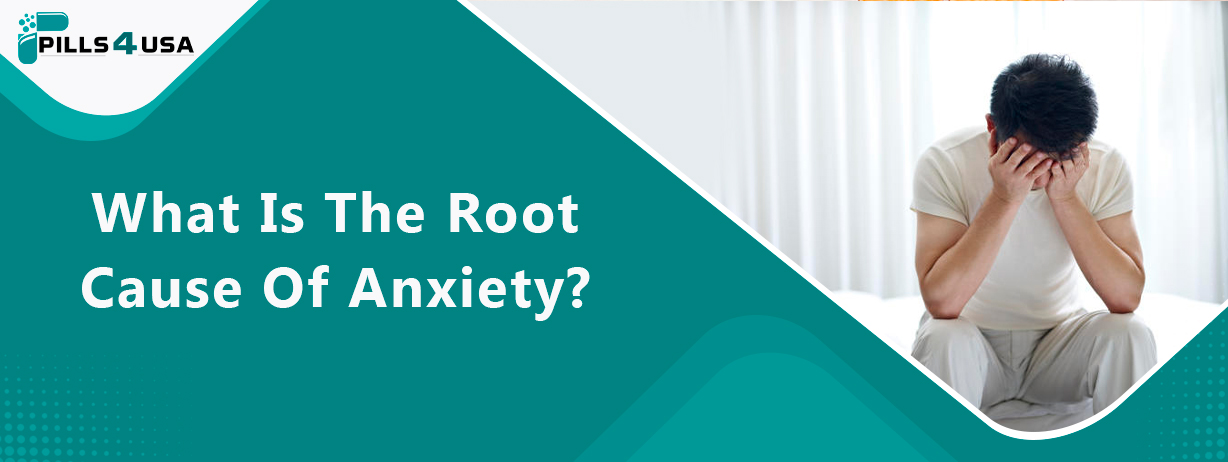Uncovering The Underlying Factors: Exploring The Root Cause Of Anxiety
Millions of individuals throughout the world suffer from anxiety, a widespread mental health issue. While it is often considered a normal response to stress, anxiety can become debilitating, interfering with daily life and relationships. Many individuals seek treatment for anxiety, but the underlying causes of this condition are often misunderstood.
In this article, we will explore the root causes of anxiety, from genetic predispositions to environmental factors, and how they can contribute to the development and persistence of this disorder. By uncovering the underlying factors that contribute to anxiety, we can gain a better understanding of this condition and develop more effective treatments to help those who struggle with it. So, let’s dive in and explore the complex nature of anxiety.
Understanding The Root Cause Of Anxiety
Anxiety is a multifaceted condition that can be caused by a variety of factors. Understanding the root cause of anxiety is essential to developing effective treatments for those who struggle with this condition.
While anxiety can be caused by a combination of genetic and environmental factors, it is often triggered by a specific event or circumstance. For example, if someone has a phobia of flying, the anxiety they experience is triggered by the thought of flying. In other cases, anxiety may occur spontaneously, without any obvious trigger.
Anxiety is often characterized by feelings of fear, worry, and unease. These emotions can be triggered by a wide range of stimuli, including social situations, work-related stress, financial difficulties, and health concerns. While anxiety is often considered a normal response to stress, it can become problematic when it interferes with daily life and relationships. In some cases, anxiety can lead to panic attacks, which can be very distressing and debilitating.
Genetics And Anxiety
There is a growing body of evidence to suggest that genetics plays a role in the development of anxiety. Studies have shown that individuals who have a family history of anxiety or other mental health conditions are more likely to develop anxiety themselves. This suggests that there may be a genetic predisposition to anxiety that is passed down from one generation to the next.
One of the most significant genetic factors in anxiety is the COMT gene. A gene called catechol-O-methyl transferase produces an enzyme that breaks down neurotransmitters such as dopamine, norepinephrine, and epinephrine. Anxiety is more likely to be experienced by individuals who have a variation of this gene that results in lower levels of the enzyme.
While genetics plays a role in the development of anxiety, it is important to note that genetics alone is not enough to cause anxiety. Environmental factors also play a significant role in the development of this disorder.
Environmental Factors And Anxiety
Anxiety development can be significantly influenced by environmental circumstances. Stressful life events, such as the death of a loved one, divorce, or financial problems, can trigger anxiety in susceptible individuals. In addition, exposure to traumatic events, such as physical or sexual abuse, can increase the risk of developing anxiety.
Other environmental factors that can contribute to the development of anxiety include social isolation, lack of social support, and exposure to violence or crime. Exposure to environmental toxins, such as lead or pesticides, has also been linked to increased anxiety levels.
It is important to note that not everyone who experiences a traumatic event or stressful life event will develop anxiety. The way that individuals respond to these events is influenced by a variety of factors, including genetics, coping mechanisms, and previous experiences.
Childhood Experiences And Anxiety
Childhood experiences can have a significant impact on the development of anxiety. Children who experience abuse, neglect, or other forms of trauma are more likely to develop anxiety later in life. In addition, children who grow up in households with high levels of conflict or who have parents with anxiety or other mental health conditions are also at increased risk of developing anxiety.
Drugs like Zopisign 10 mg, etc. may be used to treat anxiety in children. It is important to note that not all individuals who experience childhood trauma or grow up in households with high levels of conflict will develop anxiety. The way that individuals respond to these experiences is influenced by a variety of factors, including genetics, coping mechanisms, and previous experiences. For more information about anxiety-related issues, please visit Pills4USA.com.
Trauma And Anxiety
Anxiety is significantly more likely to develop after experiencing trauma. Trauma can be caused by a wide range of events, including physical or sexual abuse, natural disasters, and serious accidents. Individuals who experience trauma are at increased risk of developing anxiety disorders, such as post-traumatic stress disorder (PTSD).
Anxiety disorders like PTSD might appear following a distressing experience. Trauma-related symptoms of PTSD include intrusive thoughts, nightmares, and avoidance of reminders. PTSD can be very distressing and can interfere with daily life and relationships.
Medical Conditions And Anxiety
Anxiety development can also be influenced by medical disorders. Certain medical conditions, such as thyroid disorders, heart disease, and chronic pain, have been linked to increased anxiety levels. In addition, medications used to treat these conditions can also trigger anxiety in some individuals. However, there are a number of medications available in the market that can help in the treatment of anxiety disorders, e.g. Zopiclone.
It is important to note that not everyone who has a medical condition will develop anxiety. The way that individuals respond to these conditions is influenced by a variety of factors, including genetics, coping mechanisms, and previous experiences.
Substance Abuse And Anxiety
The onset of anxiety can also be influenced by substance addiction. People who abuse alcohol or drugs are more likely to acquire anxiety disorders. In addition, some people may experience anxiety during drug or alcohol withdrawal.
It is important to note that substance abuse can both cause and be a result of anxiety. Individuals with anxiety may turn to drugs or alcohol as a way to cope with their symptoms, which can lead to substance abuse. Medical intervention must be immediately taken in order to curb addiction to illicit substances and drugs. Doctors and medical professionals recommend over-the-counter drugs like Zopifresh 7.5 to wean addicts off their addictions.
Conclusion
In conclusion, anxiety is a complex and multifaceted condition that can be caused by a variety of factors. While genetics plays a role in the development of anxiety, environmental factors, childhood experiences, trauma, medical conditions, and substance abuse can also contribute to the development and persistence of this disorder.
Coping mechanisms, such as exercise and relaxation techniques, can be helpful in managing anxiety, but seeking professional help is often necessary for those who struggle with this condition. Doctors also prescribe dedicated medications like Zopifresh to combat anxiety-related disorders. By understanding the root causes of anxiety, we can develop more effective treatments to help those who struggle with this condition.



